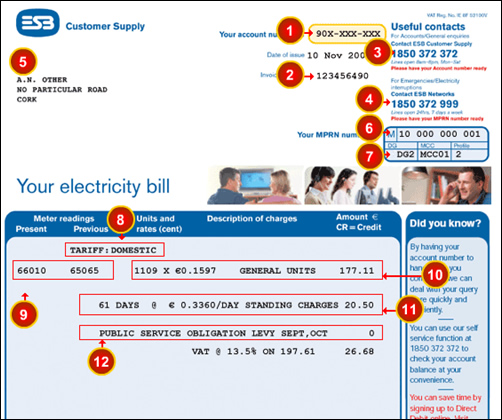- Employment
- Posted
80% of homeowners want energy upgrade through utility bills

80 per cent of Irish homeowners would be interested in paying for comprehensive energy upgrade work through a repayment tariff on their utility bills, a survey has found.
The results, from the monthly online omnibus for August by leading market research consultancy Amárach Research, coincide with the launch of a Construct Ireland campaign calling for energy upgrades across Ireland’s building stock through energy suppliers.

80 per cent of Irish homeowners would be interested in paying for comprehensive energy upgrade work through a repayment tariff on their utility bills, a survey has found.
The results, from the monthly online omnibus for August by leading market research consultancy Amárach Research, coincide with the launch of a Construct Ireland campaign calling for energy upgrades across Ireland’s building stock through energy suppliers.
The concept of repaying for a comprehensive energy upgrade over time through a new tariff on utility bills, as outlined in a feature article in the new edition of Construct Ireland , was put to survey respondents living in privately owned dwellings and responsible for paying utility bills – 59.8 per cent of the 1000 Irish adults surveyed. 80 per cent said they would be interested in this approach.
According to Amárach chairman Gerard O’Neill, who put the survey questions together with Construct Ireland editor Jeff Colley, the results indicate a strong public interest in energy efficiency. “Despite the banking crisis, despite the economic recession , Irish consumers are still open to financial innovations that help them not only to save money but reduce their carbon footprint and energy consumption,” he said. “Here we are, 18 months into recession and people are still open to these kind of proposals, which is very encouraging, especially given that we're seeing this across all age groups and social classes. This would suggest that an upgrade financed through a utility bill tariff would have nationwide appeal”.
“The results indicate that Irish people are ready to invest in energy efficiency if the requirement for upfront finance is removed,” said Jeff Colley. “Had we been more familiar with the Pay as You Save model when planning the survey, we would have asked the same questions of people living in rented accommodation.” Pay as you Save enables tenants to benefit from energy upgrade work, as the repayment obligation is assigned to the building, with subsequent occupants taking over the repayments in the event of change of occupancy.
58 per cent of homeowners responsible for energy bills said they didn’t have enough money saved to upgrade their home, whilst 29 percent said they didn’t know which upgrade measures their homes needed. 43 per cent had made energy efficiency improvements but were keen to do more, 28 per cent had considered but not carried out improvements, whilst 16 per cent hadn’t considered an energy upgrade before.

